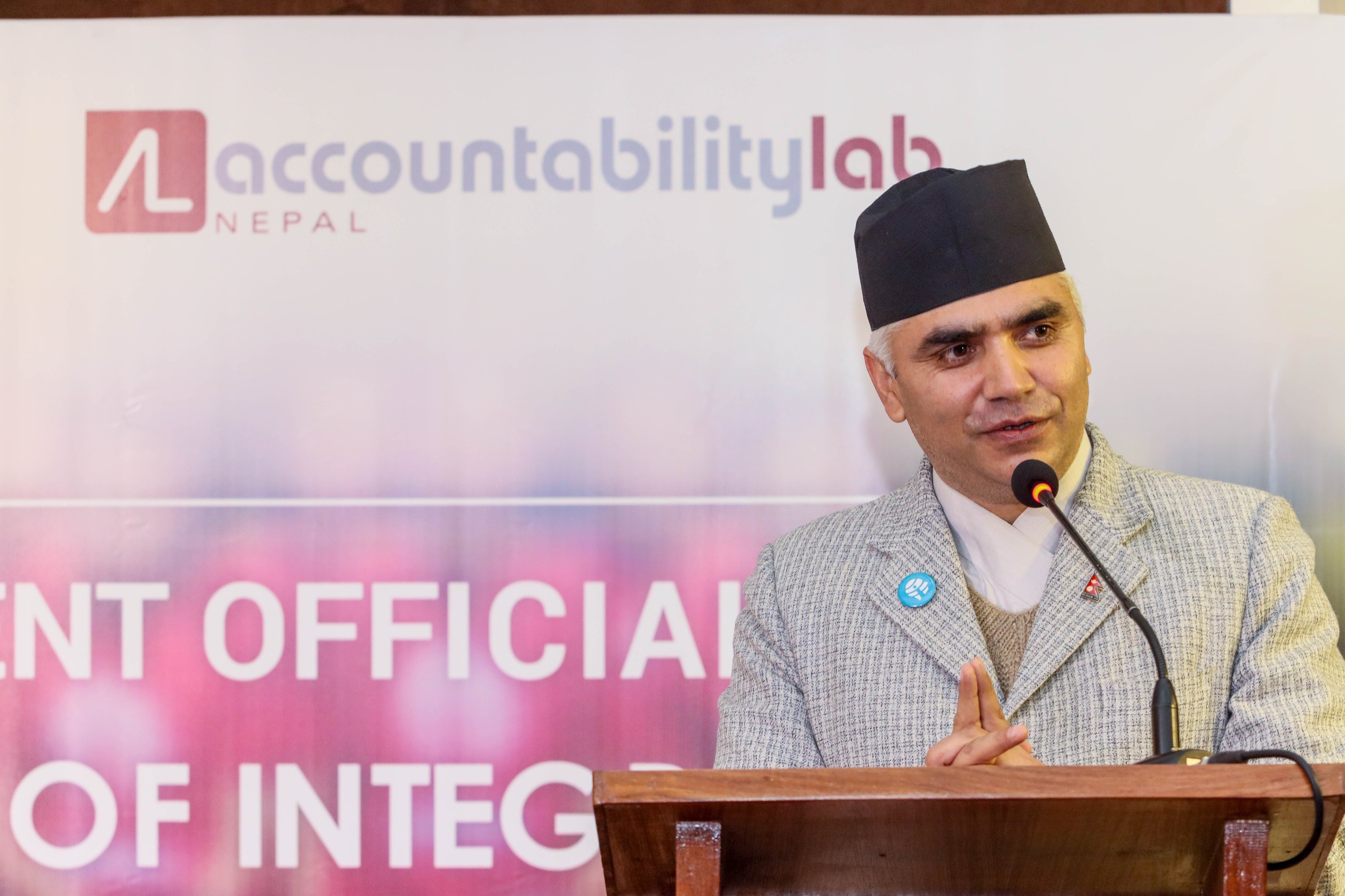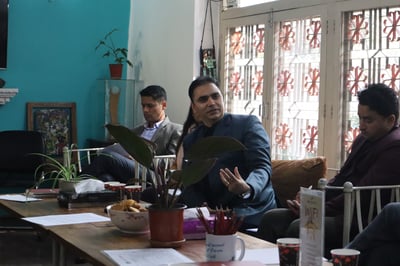NEWS
February 9, 2023

IN BRIEF
Written by Blair Glencorse and Ashmita Sharma Integrity Icon, our campaign to “name and fame” honest government officials, began ten years ago in Nepal. Over the past decade we’ve received over 7,000 nominations for honest government officials from across the country; and brought 45 of them into a vibrant network of reformers that is now working together to drive accountability within Nepali institutions. This is essential if we are to shift outcomes for citizens, improve service delivery and address Nepal’s many governance challenges. As part of the 10th anniversary celebrations during the “Year of Integrity” as we’ve branded it, [...]
SHARE
Written by Blair Glencorse and Ashmita Sharma
Integrity Icon, our campaign to “name and fame” honest government officials, began ten years ago in Nepal. Over the past decade we’ve received over 7,000 nominations for honest government officials from across the country; and brought 45 of them into a vibrant network of reformers that is now working together to drive accountability within Nepali institutions. This is essential if we are to shift outcomes for citizens, improve service delivery and address Nepal’s many governance challenges.
As part of the 10th anniversary celebrations during the “Year of Integrity” as we’ve branded it, we are catching up with our Icons from previous years and talking to them about how they continue to maintain their integrity, grow their influence and push for the changes needed within government systems.
 Recently, we chatted to Bhishma Kumar Bhusal, who was an Under Secretary in the National Reconstruction Authority when he was nominated for Integrity Icon in 2017. Since then, he has served in the Commission for Investigation of Abuse of Authority (CIAA), the Nepal Trust Office and the National Natural Resources and Fiscal Commission. Now, in part due to the credibility generated through the campaign, he has been promoted to Joint Secretary at the Ministry of Home Affairs, where he is responsible for policy, planning and monitoring- of everything from prisons and immigration to anti-fraud and anti-money laundering efforts. During our conversation, Bhishma mentioned 5 key pieces of wisdom for any civil servant looking to build integrity, even in the most difficult circumstances:
Recently, we chatted to Bhishma Kumar Bhusal, who was an Under Secretary in the National Reconstruction Authority when he was nominated for Integrity Icon in 2017. Since then, he has served in the Commission for Investigation of Abuse of Authority (CIAA), the Nepal Trust Office and the National Natural Resources and Fiscal Commission. Now, in part due to the credibility generated through the campaign, he has been promoted to Joint Secretary at the Ministry of Home Affairs, where he is responsible for policy, planning and monitoring- of everything from prisons and immigration to anti-fraud and anti-money laundering efforts. During our conversation, Bhishma mentioned 5 key pieces of wisdom for any civil servant looking to build integrity, even in the most difficult circumstances:
- Integrity Inspires Imitation– it might feel sometimes like having integrity makes you an outcast. Bhishma argues the opposite- after a while, it actually begins to attract people to you in large numbers because they feel “safe” as he put it. They feel they can be themselves and live by their values without having to participate in a system of corruption- and that is a powerful motivator. We spoke with several of his junior colleagues, all of whom said they actively worked to be placed in his office because they wanted to learn from him and they knew that with his support they could drive change within the system.
- Protect Your Juniors– the hardest moment in government is not when you are most senior and people know they cannot corrupt you. It is when you first get started and you are under immense pressure to engage in corrupt systems. Bhishma talked about when he was a junior tax officer and he was ostracized and bullied by his colleagues for not taking bribes. Young people coming into government need to be shielded and protected by their seniors and given a network of peers they can rely on to back them up- this is what we are trying to do through our Integrity Scholars program.
- Integrity Comes Through Empathy– Integrity is a value but empathy is an approach- and it has to be central to everything you do as a civil servant. Trust with citizens comes through empathy with service-seekers- truly working to understand their challenges and solving those problems for them. This builds incredible trust and understanding. Bhishma talked about how people are always watching you- the car you drive, the company you keep, the food you eat. They need to know that you understand the life they lead. It is this that demonstrates integrity externally, which allows you to push for it inside government.
- Delivery Builds Integrity– Now, Bhishma is involved with leading a series of critical reforms within the Home Ministry- since taking his post a year ago he has cracked down on loan sharks (illegal money lenders); developed the government’s capacity to combat cyber-crimes; and built-out the training on integrity and financial management issues with the police department. In a huge step forwards, he also put in place a real-time, comparative performance management system for Chief District Officers (CDOs) using 73 indicators to track performance, including around financial management issues. Through finding ways to motivate the IT team within the ministry (including through public recognition in front of the Minister), Bhishma managed to get this system put in place at no additional cost to the taxpayer.

- Build Values-Based Teams– Bhishma is in the process of building teams of integrity everywhere he goes, leaving a legacy within each department as he moves on to the next. In this way, he hopes to grow the network of people across government that can push for the right kinds of changes, even after he has moved on. He is also teaching at the Staff College (civil service training school); working with us to mentor our Integrity Scholars and Fellows; and is a central node in our community of Icons- who collectively are demonstrating to Nepali citizens that there is a very different kind of governance that is possible.
We asked Bhishma what his plans are now. He said that Integrity Icon has made him a celebrity- sometimes he travels to the most remote parts of Nepal and citizens call him out as an Integrity Icon and want a photo with him. This has given him the credibility and trust he needs to continue to work hard to build integrity within Nepal. “I want to promote integrity within the system wherever I go and really institutionalize this approach,” he said.
*Blair and Ashmita chatted with Bhishma Bhusal in January 2023 in his office within the Home Ministry in Kathmandu.
